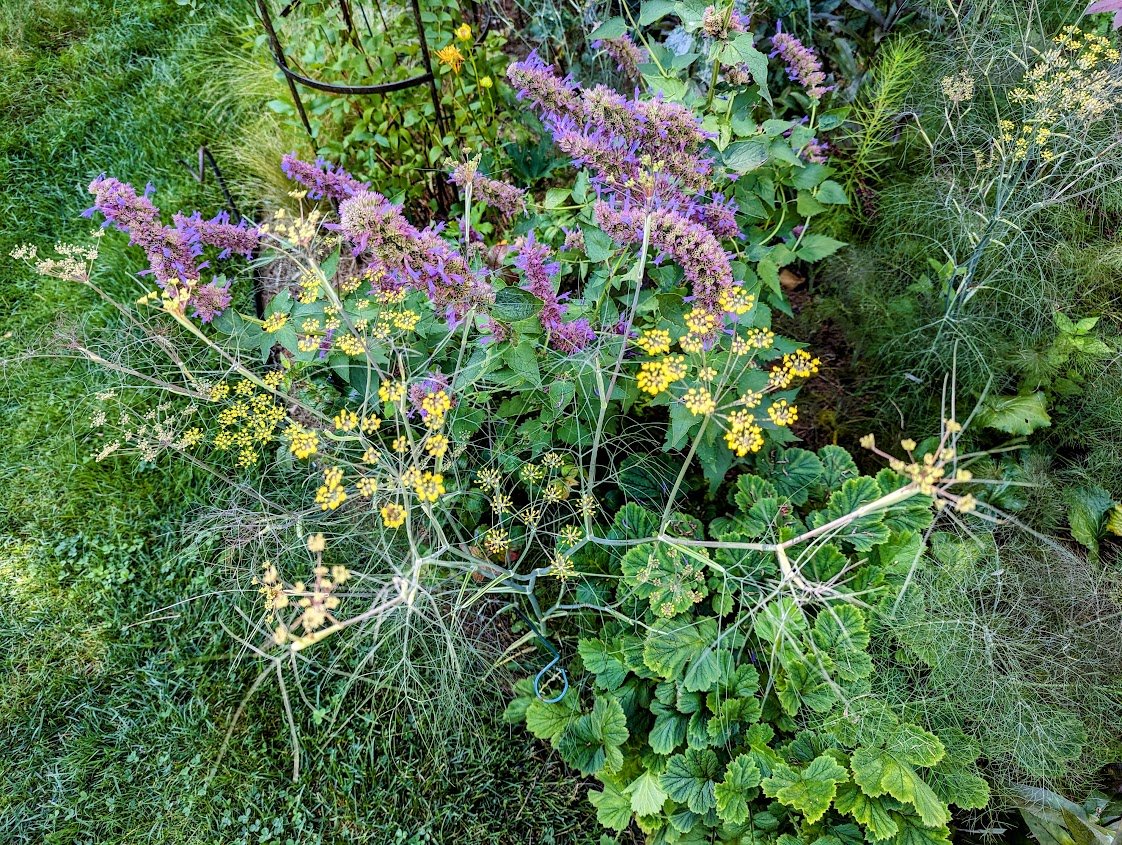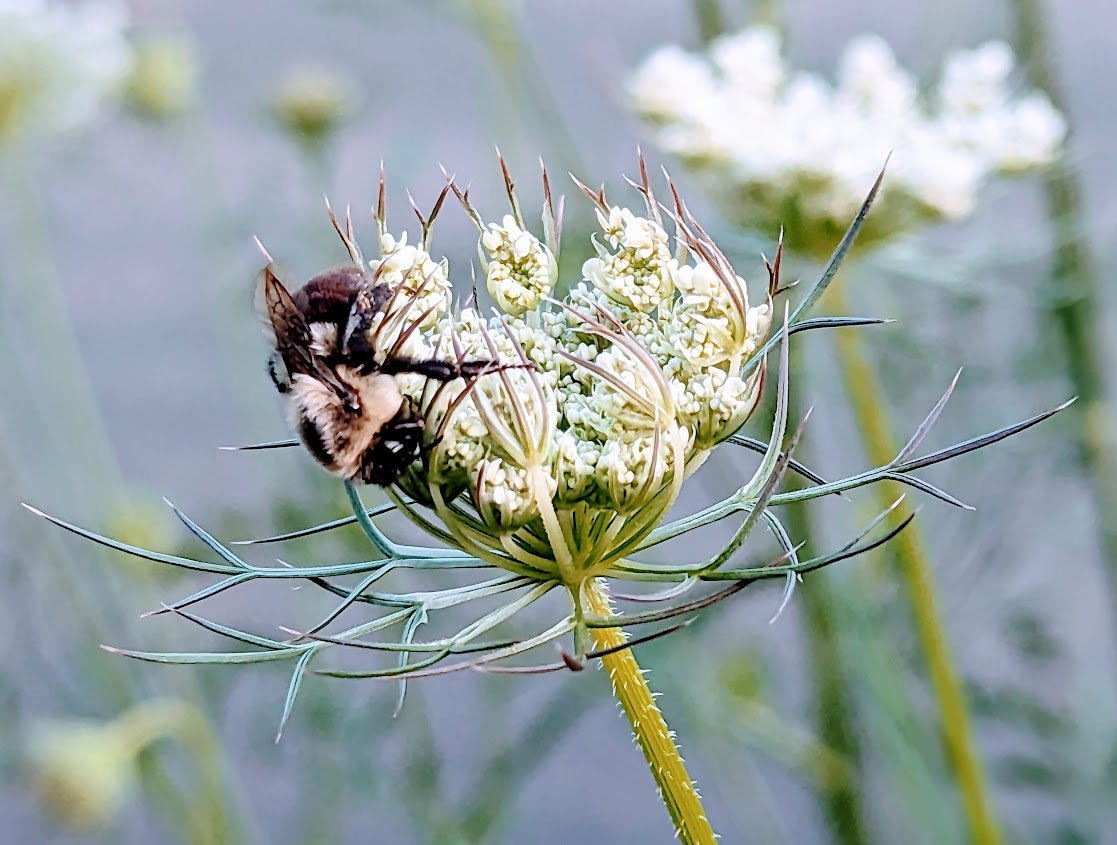Umbellifers ~ wild carrot, fennel, dill
No other plants bring such a sense of grace and romance to a perennial garden like umbellifers. I am mad about any plant with the classic lacy inflorescence. Bees and butterflies love this flower shape. The broad, flat landing pads are easy for them to perch, sip nectar and gather pollen. Eastern swallowtail butterflies lay eggs on their foliage so larva have an immediate food source. My ‘must have’ umbellifers include:
daucus carota ‘Dara’, aka wild carrot. Related to Queen Anne’s Lace, ‘Dara’ is easily grown from seed and blooms from mid summer into late fall. Blooms open light pink and white, then mature to a deep maroon. Even the spent blooms are lovely as they close and turn a creamy white.
foeniculum vulgare ‘purpureum’, aka bronze fennel is a stunning annual grown from seed that happily reseeds through the garden in subsequent years. Foliage is impossibly delicate, bronze and aromatic. The cherry yellow flowers are the perfect companion to lavender and purple spikes of agastache. Every year, I discover eastern swallowtail caterpillars happily munching the tender, thin foliage. If you disagree with where it has reseeded itself, seedlings are easy to remove and share with others!
daucus carota ‘Queen Anne’s Lace’, this iconic annual of meadows and roadside ditches can be a lovely addition to the pollinator garden. Mine appeared this summer, ‘volunteering’ in the sunny mailbox garden and bloomed for months, hosting native bees and butterflies. I will deadhead carefully to control its invasive tendencies!
Plant type: annual, naturalized in North America
Growing Conditions: full sun, drought tolerant
Size: 24-36" in height;
Spread: reseed if not deadheaded in fall
Bloom: mid July to frost in Zone 5b
Maintenance: remove dried seed heads to prevent reseeding
Biodiversity: nectar and pollen for bees, wasps, beetles
Pairings: agastache, veronicastrum, liatris, knifophia
Location: place in middle or front of border to achieve a "see-through" effect
Host plant: eastern swallowtail butterfly and assorted moths
Sourcing: Baker Creek/Rare Seeds







